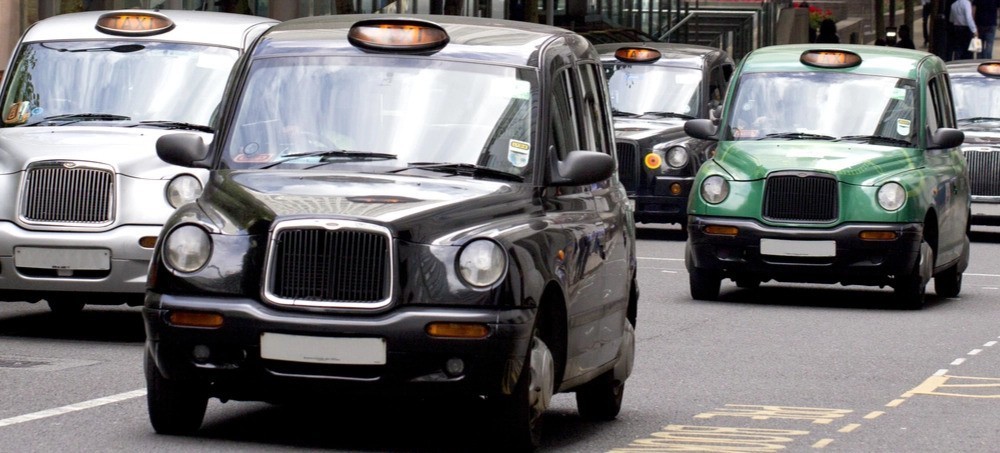-
Ροή Δημοσιεύσεων
- ΑΝΑΚΆΛΥΨΕ
-
Σελίδες
-
Blogs
-
Courses
-
Ταινίες
What Are the Rules for Taking Taxis in the UK?

Taking a taxi in the UK might seem straightforward, but several important rules and regulations are designed to protect both passengers and drivers. Whether you're a visitor or a local resident, understanding these guidelines ensures a safe and smooth journey every time.
Licensing and Legal Requirements
All legitimate taxi services in the UK must be properly licensed by local authorities. Two main types of licences are issued: hackney carriage licences for traditional black cabs that can be hailed on the street, and private hire licences for minicabs that must be pre-booked. This distinction is crucial because unlicensed vehicles operating as taxis are illegal and potentially dangerous.
Licensed vehicles are required to display their licence numbers prominently, usually on the doors or rear of the vehicle. Drivers must also carry valid identification and their driving licence at all times. These measures are enforced to ensure passenger safety and service standards are maintained across the country.
Booking Your Journey
Private hire vehicles cannot be hailed directly from the street - they must be booked through a licensed operator. This rule applies whether you're arranging Airport Taxi Transfers or a simple trip across town. The booking can be made by phone, through a mobile app, or online, but direct street hailing of private hire vehicles is prohibited.
Traditional black cabs, however, can be hailed directly from the street or found at designated taxi ranks. These vehicles are equipped with taximeters that calculate fares based on time and distance travelled.
Fare Regulations and Payment
Taxi fares in the UK are regulated differently depending on the type of service. Black cab fares are typically controlled by local authorities and must be clearly displayed on a working meter. The driver is legally required to use the meter for all journeys within their licensed area.
For private hire vehicles, fares should be agreed upon before the journey begins. Many operators now provide upfront pricing through their booking systems, which helps avoid disputes later. Payment methods vary, but most services now accept card payments alongside traditional cash transactions.
Safety Standards and Vehicle Requirements
Strict safety standards are enforced for all licensed taxi vehicles. Regular MOT tests are mandatory, and additional safety inspections are carried out by licensing authorities. Vehicles must display appropriate signage, carry insurance specifically for taxi work, and meet accessibility requirements where applicable.
Drivers undergo enhanced background checks, including DBS (Disclosure and Barring Service) clearance, medical examinations, and geographical knowledge tests in many areas. These requirements ensure that only suitable individuals are permitted to operate taxi services.
Passenger Rights and Responsibilities
Passengers have specific rights when using taxi services in the UK. You're entitled to a safe, direct route to your destination, and drivers cannot refuse reasonable journeys within their licensed area without valid justification. If traveling routes like Taxi from Stalybridge to Manchester, drivers must accept the booking unless there are legitimate safety concerns.
However, passengers also have responsibilities. Abusive behaviour, smoking, or consuming alcohol in the vehicle is prohibited. Damage to the vehicle or failure to pay agreed fares can result in legal action. It's worth noting that guide dogs and assistance dogs must be carried free of charge in all licensed vehicles, except where drivers have medical exemptions.
Regional Variations
Different regions across the UK may have specific local regulations. London's black cab drivers, for instance, must pass the famous "Knowledge" test, demonstrating detailed understanding of the capital's street layout. Other cities have their own licensing requirements and fare structures.
Some areas have implemented additional rules regarding clean air zones, where older vehicles may face restrictions or charges. When planning longer journeys such as Chorlton to Manchester Airport, it's wise to check local regulations that might affect your journey.
Complaints and Dispute Resolution
If problems arise with your taxi journey, formal complaint procedures are available through local licensing authorities. All licensed operators must provide clear information about their complaints process, and serious issues can be reported directly to the council that issued the licence.
For journeys like Taxi from Manchester to East Midlands Airport, which may cross different authority areas, it's important to know which licensing body has jurisdiction over your pickup location, as this determines which authority handles any complaints.
Accessibility and Special Requirements
UK taxi regulations include strong provisions for passengers with disabilities. Many black cabs are wheelchair accessible, and drivers receive training on assisting passengers with various needs. When booking private hire vehicles, specific accessibility requirements can usually be accommodated with advance notice.
Conclusion
Understanding these rules helps ensure your taxi journeys across the UK are safe, legal, and hassle-free. Whether you're taking a short local trip or a longer journey to catch a flight, choosing properly licensed services and knowing your rights protects both your safety and your wallet. Always verify that your chosen taxi service displays proper licensing and don't hesitate to report any concerns to the relevant authorities.
- Art
- Causes
- Crafts
- Dance
- Drinks
- Film
- Fitness
- Food
- Παιχνίδια
- Gardening
- Health
- Κεντρική Σελίδα
- Literature
- Music
- Networking
- άλλο
- Party
- Religion
- Shopping
- Sports
- Theater
- Wellness


